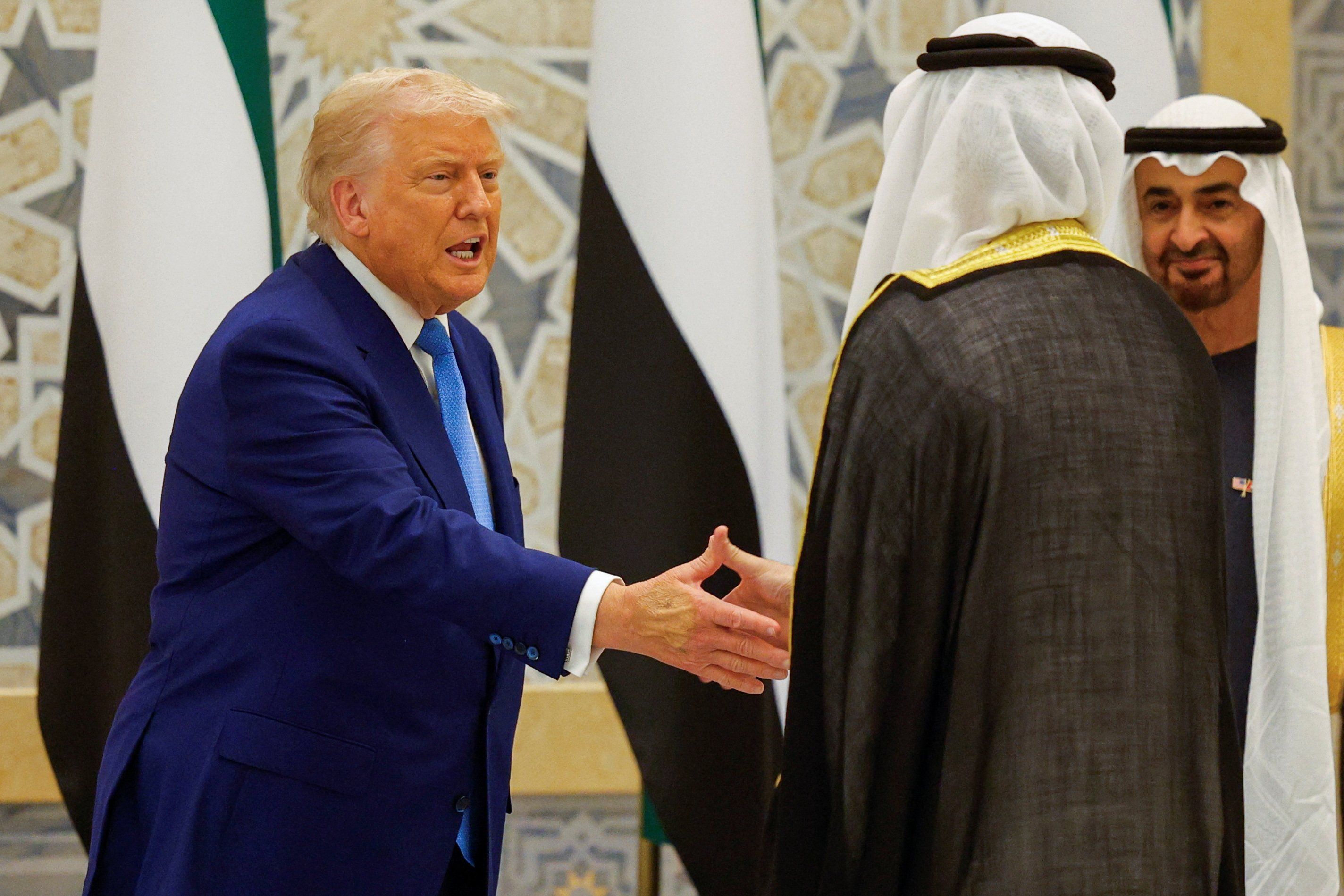In a newly detailed report, The New York Times alleges that President Donald Trump's family secured billions of dollars through a deal orchestrated by his Middle East envoy, Steve Witkoff, and his son Zach Witkoff.
An extensive article by Eric Lipton, David Yaffe-Bellany, Bradley Hope, Tripp Mickle, and Paul Mozur describes how Witkoff and Sheikh Tahnoon bin Zayed Al Nahyan have "become both diplomatic allies and business partners, testing the limits of ethics rules while enriching the president, his family and his inner circle."
According to the report, a series of multi-billion-dollar arrangements involved Witkoff and Trump’s joint crypto company and the sale of computer chips to the UAE, generating significant financial benefits for them.
While administration officials objected to these deals, National Security Council senior director for technology David Feith was notably the main obstacle. The Times notes that far-right activist and Trump confidant Laura Loomer intervened in Feith’s firing, maintaining that it was for a separate issue. Loomer reportedly told Trump that Feith’s father’s political views were problematic, as Feith’s father previously served in George W. Bush’s administration.
After Feith was ousted, UAE negotiations proceeded under the leadership of David Sacks, Trump’s advisor on AI and cryptocurrency. At one point, the White House counsel acknowledged potential ethical concerns.
"Early investors in Craft Ventures, the firm Mr. Sacks helped start in 2017, included the Abu Dhabi Investment Authority, which is now overseen by Sheikh Tahnoon," the report notes. "Until at least March, Mr. Sacks, who is still working at Craft, was also invested in a stock fund that included the Taiwan Semiconductor Manufacturing Co., which builds Nvidia’s chips, and other A.I.-related companies such as Amazon and Meta."
The White House counsel signed a letter granting Sacks a special waiver to make formal decisions for the government—even on matters that affected his own investments. "Without the waiver, those kinds of actions could violate conflict-of-interest law," the Times wrote. Sacks and Craft Ventures then sold off their remaining stake in the AI firm.
As these deals unfolded in the background, Witkoff was simultaneously negotiating with the UAE over a U.S.-backed chip factory. The Times points out that a competing chip factory is also being built in the United States, adding further complexity. Both Witkoff and Sacks pressed to build the factory, with negotiations covering chip shipments to the UAE, expanding from 100,000 chips annually to 500,000.
The benefit would ensure billions in "U.S. industrial growth" and AI deployment. Top officials raised concerns, questioning whether the U.S. was demanding enough from Sheikh Tahnoon for chip sales, suggesting Trump should push the UAE to cancel military exercises with China and halt certain technology transfers.
Meanwhile, Zach Witkoff emerged as "the face of World Liberty," announcing in a post on X that his stablecoin would not fluctuate like Bitcoin, mirroring the steadiness of U.S. currency. In search of investors and expertise, Zach Witkoff traveled to the UAE, hiring one of the Sheikh’s top aides.
While his father handled diplomatic negotiations, Zach arranged for World Liberty to partner with MGX, a company chaired by Sheikh Tahnoon.
"MGX would use World Liberty’s USD1 stablecoin to complete a $2 billion investment in Binance, a giant crypto exchange," the Times reported. "It was the single largest investment in a crypto company ever, according to Binance. The transaction effectively handed World Liberty a $2 billion bank deposit, funds that the company could invest for annual returns in the tens of millions."
The Times describes these events as "the start of a succession of wins for the Witkoffs, the Trumps and the Emiratis."
Read the full report here.
